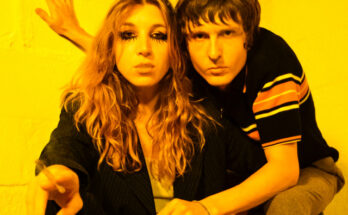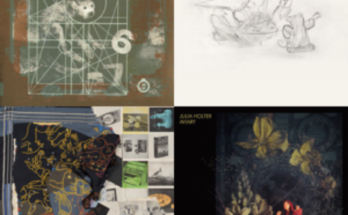A year ago, many others and I would have been overjoyed to catch Death Cab For Cutie in concert. After leader Ben Gibbard’s side project experienced such mainstream success, more pseudo-indie press than money could buy on The OC and making a jump from Seattle’s fiercely independent Barsuk Records to Atlantic, you’d think there’d be some drama. But there isn’t any.
No drug addiction has haunted the band, no supermodel girlfriends have satisfied the band, and surprisingly few sell-out accusations have been levied against their first record with Atlantic, the satisfying but middle-of-the-road Plans.
Many people I spoke with before the show felt no excitement or tension about the performance; it was as if they were paying a debt to a band they had once felt devoted too. Thus when Death Cab For Cutie rolled into Foellinger’s Auditorium, it felt a year too late.
Not all fans seemed to feel this way, though. For many it was clearly the social event of the year; the large theatre lobby remained full during Aussie openers Youth Group’s somewhat bland set of mid-tempo rock. It’s not like anyone doubts Gibbard’s earnestness, either.
Despite of his awkward stage presence, which features his short, squat frame waddling to either side of the mic swinging guitar in hand, it’s hard to discount the honesty in his voice, and there’s the sound of tragedy to be discerned; lyrically, Gibbard has revealed his existential crisis to be paternal neglect.
Like many groups, though, the ties between band and audience seemed to be that Gibbard’s songs are never too personal to prevent listeners from adopting the vague crises of Gibbard to their own. This is not my own subjective theory, but a metric easily measured by counting the percentage of fans throwing back their shoulders and mouthing the lyrics. Indeed, the crowd seemed to be stick together remarkably tight despite a diverse crowd of white Greeks, white punks, and white English-school preps. What made up these ties, it seemed, was something personal: couples for whom
Death Cab’s songs index something stronger than memories alone, adolescent hormones. This ability to be assimilated isn’t necessarily a problem, though; in addition to selling records, it gives Gibbard the chance to turn metaphors all over the place, as he did in newer, softer single, “Soul Meets Body,” where the band really rocked the wordless chorus.
Multi-instrumentalist/producer Chris Walla (stage left) is acting music director for the occasional atmospherics. There was no denying the beauty in the band’s performance of one of their best songs to date, “A Movie Script Ending,” or that they can rock out (granted, they did so only rarely and in a calculated fashion), but fans who may have be unfamiliar with some of the more muscular, older material appeared impressed.
In the end, though, there wasn’t a single surprise the entire night, and I left thirsty for something that was as bewildering as the first time I heard Gibbard’s voice one Sunday morning. Death Cab, if you want to really win us over, try alienating us first.



